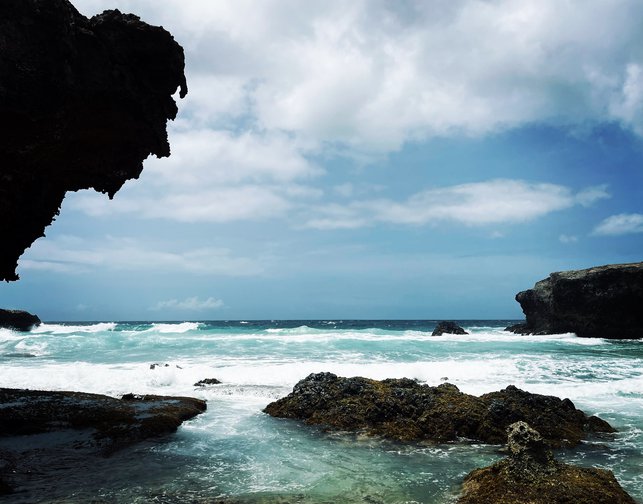Strikingly, there is no record of any European aid, in a country that grants Dutch nationality and EU passports to its citizens.
There are individual initiatives too. Mallory Medina, a Venezuelan who’s lived on Aruba for 25 years, operates from a shop in a deserted shopping mall – the economy, which relies almost exclusively on tourism, is still reeling from the coronavirus pandemic. Mallory sells donated clothes to needy Venezuelan families at the cost of $1 per item, and then uses the money to distribute meals to the hungry.
Mallory is particularly proud of her work pre-COVID. She recounts how, with the help of the Aruban authorities and UNHCR, she arranged some humanitarian flights to voluntarily repatriate Venezuelan refugees who, faced with the tremendous difficulties of settling on the island, had decided to return home. The project was halted by the pandemic and the closure of the Venezuelan border.
The determination to return home, whether urgent or not, is shared by most Venezuelan migrants in Aruba, says Blanchard. Some, like him, do manage to earn good money, which they send back to their families, but the precarious conditions, constant fear and virtual impossibility of obtaining work and residence permits are decisive deterrents to any plan of living on the island.
The dream of the ‘happy island’ can become a nightmare. There are barriers of all kinds, including language: Papiamento is the local Creole language, English the working language and Dutch the official administrative language – though Spanish is also widely spoken. The administration’s priority seems to be to dissuade Venezuelans from their dream of emigrating to this alleged paradise by placing an insurmountable bureaucratic wall in front of them.


Comments
We encourage anyone to comment, please consult the oD commenting guidelines if you have any questions.